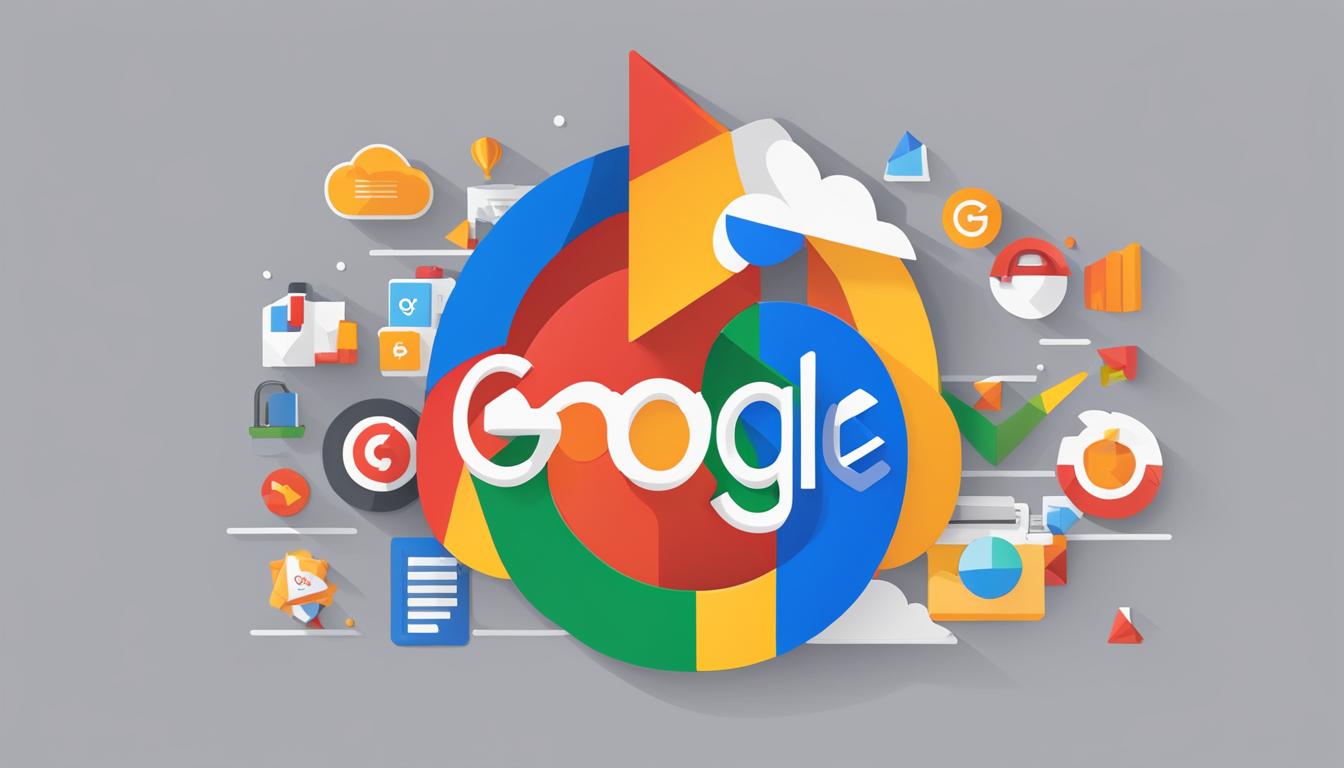Digital Marketing Trends For 2024 : The landscape of digital marketing is constantly evolving, and staying updated with the latest trends is crucial for businesses to stay competitive in 2024. As technology continues to advance, emerging marketing trends will shape the future of digital marketing and redefine how brands engage with their audience. From artificial intelligence to video marketing dominance, these trends are set to revolutionize the industry. Let’s take a closer look at the latest digital marketing strategies and online advertising trends that will dominate the digital landscape in 2024.
Key Takeaways:
- Stay updated with the latest digital marketing trends to remain competitive in 2024.
- Emerging marketing trends will shape the future of digital marketing.
- Artificial intelligence and personalized experiences will transform the digital marketing landscape.
- Voice search optimization and conversational keywords are essential for reaching the audience in 2024.
- Personalization and hyper-targeting are key strategies to engage customers.
Trend 1: Artificial Intelligence in digital marketing
Artificial Intelligence (AI) is revolutionizing digital marketing, providing marketers with powerful tools to analyze vast amounts of data and deliver personalized experiences to their audience. By harnessing the capabilities of AI-powered tools, digital marketers can make data-driven decisions, optimize campaigns, and create engaging content that resonates with their target audience.
One of the key applications of AI in digital marketing is the use of chatbots. These AI-powered virtual assistants can provide instant customer support, answer queries, and guide users through their purchasing journey. Chatbots offer round-the-clock assistance, improving customer satisfaction and simplifying the customer service process.
Predictive analytics is another AI-powered tool that enables marketers to gain valuable insights into consumer behavior and preferences. By analyzing large sets of data, marketers can identify patterns, predict future trends, and make data-driven marketing decisions. This allows businesses to optimize their marketing strategies, target the right audience, and enhance campaign performance.
Moreover, AI enables the creation of personalized experiences for customers. By leveraging AI, marketers can analyze customer data, preferences, and behavior to deliver highly targeted content and tailor-made recommendations. This level of personalization enhances customer engagement, builds brand loyalty, and significantly improves the overall customer experience.
AI is transforming the digital marketing landscape in 2024 and beyond, offering marketers unprecedented opportunities to optimize their strategies, engage with their audience, and drive business growth.
Benefits of AI in Digital Marketing
- Improved data analysis and decision-making
- Enhanced customer engagement and satisfaction
- Targeted and personalized marketing campaigns
- Optimized content creation and delivery
- Streamlined customer service and support
Trend 2: Voice search optimization
Voice search is rapidly gaining popularity with the increasing usage of virtual assistants like Siri and Alexa. To stay ahead in the digital marketing landscape of 2024, optimizing your content for voice search is imperative. This involves incorporating conversational keywords and providing concise answers to common questions, enhancing the user experience and driving organic traffic to your website.
The Rise of Virtual Assistants
Virtual assistants, such as Siri and Alexa, have revolutionized the way people search for information online. With just a simple voice command, users can find answers, get directions, and even make purchases. The convenience and ease of use offered by virtual assistants have made voice search a popular choice among users.
Natural Language Processing and Conversational Keywords
Optimizing your content for voice search requires understanding natural language processing (NLP) and leveraging conversational keywords. NLP enables virtual assistants to comprehend human speech patterns and deliver accurate search results.
“Hey Siri, what are the latest digital marketing trends for 2024?”
By incorporating conversational keywords, you can align your content with the way people speak and search. Consider using long-tail keywords that mimic natural conversation, helping your website rank higher in voice search results.
Providing Concise Answers
When optimizing for voice search, it is crucial to provide concise and direct answers to common questions. Virtual assistants strive to deliver quick and accurate information to users. By structuring your content in a way that directly addresses popular queries, you increase your chances of appearing in voice search results.
| Benefits of Voice Search Optimization | Challenges of Voice Search Optimization |
|---|---|
|
|
By incorporating voice search optimization techniques into your digital marketing strategy, you can tap into the growing number of voice search users and increase your online visibility. The image below visually represents the importance of voice search optimization in driving organic traffic and overall website growth.
Trend 3: Personalization and hyper-targeting

In the digital marketing landscape of 2024, personalization has emerged as a key strategy for businesses to engage with their audience effectively. Consumers now expect tailored experiences and personalized content that speaks directly to their needs and preferences. To meet this demand, marketers are leveraging advanced data analytics and AI-powered tools to deliver highly targeted campaigns that resonate with their audience.
Hyper-targeting is the practice of segmenting your audience into specific groups based on various demographics, interests, and behaviors. By understanding your target audience on a deep level, you can create personalized messages and deliver them through the most relevant channels, creating a more engaging and impactful customer experience.
Why Personalization Matters
Personalization goes beyond simply addressing customers by their names. It involves creating unique experiences that cater to their individual tastes and preferences. By delivering personalized content, businesses can drive higher customer engagement, build brand loyalty, and ultimately increase conversions and sales.
“Personalization is about understanding your customers and tailoring your marketing efforts to meet their specific needs and desires. It is a powerful tool that allows businesses to stand out in a crowded digital landscape and make meaningful connections with their audience.” – Jane Smith, Marketing Expert
Benefits of Personalization and Hyper-Targeting
- Improved Customer Engagement: When customers receive personalized messages and offers, they are more likely to engage with your brand and take action.
- Enhanced Customer Experience: By delivering relevant content and recommendations, you can provide a seamless and enjoyable experience for your customers, increasing satisfaction and loyalty.
- Increased Conversion Rates: Personalized campaigns have been shown to have higher conversion rates as they are tailored to match customers’ interests and preferences.
- Improved ROI: By targeting the right audience with personalized campaigns, businesses can optimize their marketing spend and achieve a higher return on investment.
Implementing personalization and hyper-targeting requires a deep understanding of customer data and leveraging advanced technologies. Marketers should analyze customer behavior, preferences, and purchase history to generate actionable insights for targeted campaigns. AI-powered tools can help automate the process, ensuring that the right message reaches the right audience at the right time.
Embracing personalization and hyper-targeting in your digital marketing strategy is crucial for staying relevant in 2024. By delivering personalized experiences and highly targeted campaigns, businesses can create stronger customer connections, drive engagement, and achieve long-term success in the ever-evolving digital landscape.
Trend 4: Video marketing dominance

Video marketing is set to become the driving force behind digital marketing strategies in 2024. With the rise of platforms like YouTube and TikTok, short-form videos have captured the attention of billions of users worldwide. Businesses now have an incredible opportunity to leverage video content to engage their audience and elevate their brand awareness.
The popularity of YouTube and TikTok demonstrates the immense potential of video marketing. These platforms allow businesses to create and share compelling short-form videos that captivate viewers within seconds. By crafting engaging content, brands can communicate their message effectively and leave a lasting impression on their target audience.
Short-form videos are particularly enticing to consumers due to their bite-sized nature and entertainment value. This format aligns with the fast-paced digital landscape and caters to shorter attention spans, ensuring that businesses can effectively convey their message without losing viewer interest.
YouTube, as the world’s largest video-sharing platform, remains a powerhouse for businesses to showcase their products or services through engaging video content. Meanwhile, TikTok’s explosive growth has opened up new avenues for creative marketing, especially for brands looking to target younger demographics.
It is essential for businesses to create captivating and engaging video content that aligns with their brand identity and resonates with their target audience. By harnessing the power of video marketing, brands can leverage the visual and auditory elements to deliver messages that leave a lasting impact on viewers.
Whether it’s through storytelling, tutorials, behind-the-scenes glimpses, or product demonstrations, businesses can utilize video marketing to foster a deeper emotional connection with their audience. The ability to evoke emotions and convey messages in a visually compelling manner sets video marketing apart from other forms of content.
To take full advantage of the video marketing trend in 2024, businesses can implement strategies such as:
- Creating a YouTube channel to engage with the platform’s vast user base and share valuable video content.
- Seizing the opportunities offered by TikTok’s growing popularity, especially if targeting younger demographics.
- Emphasizing creativity and authenticity in video content to stand out in the saturated digital landscape.
- Ensuring videos are optimized for mobile viewing to accommodate the increasing number of users accessing content on smartphones and tablets.
- Collaborating with influencers or industry experts to leverage their reach and enhance brand credibility.
Overall, video marketing’s dominance in 2024 presents businesses with an opportunity to connect with their audience on a deeper level and drive brand awareness like never before.
Key Takeaways:
Video marketing is expected to dominate the digital marketing landscape in 2024, with platforms like YouTube and TikTok leading the way.
- Short-form videos on YouTube and TikTok have captivated billions of users, making them essential channels for businesses to engage with their target audience.
- Video content allows brands to convey messages effectively, cater to shorter attention spans, and leave a lasting impression on viewers.
- Creativity, authenticity, and emotional connection are crucial elements of successful video marketing strategies.
- Businesses should optimize videos for mobile viewing and consider collaborations with influencers to enhance brand visibility and credibility.
Trend 5: Influencer marketing evolution

Influencer marketing is undergoing a significant evolution in 2024, as brands recognize the importance of authenticity and long-term partnerships. Instead of simply seeking popular influencers, brands are now focusing on building meaningful relationships with micro-influencers who align with their values and target audience.
Authenticity is at the forefront of influencer marketing strategies, as consumers place a premium on genuine brand endorsements. Collaborating with influencers who have a deep connection with their audience allows brands to leverage the trust and credibility they have built, resulting in more effective and impactful campaigns.
Long-term partnerships are also gaining momentum in influencer marketing. Rather than one-off collaborations, brands are opting for sustained relationships with influencers, enabling them to tell a more cohesive and authentic brand story over time. This approach fosters deeper engagement with the influencer’s audience and strengthens brand loyalty.
Micro-influencers, with their smaller but more engaged followings, are playing a crucial role in this evolution. These influencers have a niche audience that shares their interests and values, making them ideal for targeted and highly engaged marketing. By partnering with micro-influencers, brands can tap into their niche communities, fostering a sense of credibility and relatability.
As influencer marketing continues to evolve, it is essential for brands to prioritize authenticity, long-term partnerships, and micro-influencers. By doing so, they can establish genuine connections with their target audience and create impactful campaigns that drive meaningful results.
| Benefits of Influencer Marketing Evolution | Key Takeaways |
|---|---|
| 1. Authentic brand endorsements | 1. Authenticity is vital in influencer marketing. |
| 2. Deeper audience engagement | 2. Long-term partnerships foster deeper engagement. |
| 3. Niche targeting and relatability | 3. Micro-influencers bring niche audiences. |
Trend 6: Augmented Reality (AR) and Virtual Reality (VR)

AR and VR technologies are revolutionizing how businesses engage with their audience. In 2024, expect to see more businesses incorporating AR and VR into their marketing strategies to create interactive and immersive experiences.
| Benefits of Augmented Reality and Virtual Reality in Marketing | Successful Examples |
|---|---|
|
|
By incorporating augmented reality and virtual reality, businesses can create interactive and immersive experiences that capture the attention and interest of their target audience. These technologies allow customers to engage with products, services, or virtual environments in a way that enhances their overall experience.
Augmented reality integrates digital elements into the real world, while virtual reality completely immerses users in a simulated environment. Both AR and VR provide unique opportunities for businesses to showcase their offerings, allowing customers to visualize products, explore virtual spaces, and even try out virtual prototypes.
From home improvement retailers like Home Depot using AR to visualize home renovations, to clothing brands like Nike creating virtual shopping experiences, businesses are leveraging AR and VR to captivate their audience and differentiate themselves from competitors.
With the advancement of technology and more accessible devices, AR and VR experiences will become increasingly popular in digital marketing. By embracing these technologies, businesses can create unforgettable experiences that leave a lasting impression on customers.
Trend 7: Chatbots and automated messaging

As digital marketing continues to evolve, chatbots and automated messaging are rapidly gaining popularity. These AI-powered tools are revolutionizing customer service by providing instant support and enhancing the overall customer experience.
Chatbots are software programs designed to interact with users in natural language, simulating human conversation. They can be integrated into websites, messaging apps, and social media platforms, enabling businesses to engage with customers in real-time.
Automated messaging, on the other hand, refers to the use of pre-programmed messages and responses to provide quick and efficient customer support. This technology allows businesses to handle multiple conversations simultaneously, ensuring prompt and personalized responses to customer inquiries.
One of the key benefits of chatbots and automated messaging is their ability to provide instant support 24/7. Customers can receive immediate assistance with their queries, even outside of regular business hours. This not only enhances customer satisfaction but also improves overall customer service efficiency.
Benefits of Chatbots and Automated Messaging:
- Instant and personalized customer support
- 24/7 availability, improving customer service efficiency
- Ability to handle multiple conversations simultaneously
- Reduction in response times and customer wait times
- Cost-effective compared to manual customer support
Furthermore, chatbots and automated messaging enable businesses to collect valuable customer data and insights. By analyzing these interactions, companies can identify customer preferences, pain points, and frequently asked questions, helping them improve their products and services.
Chatbots and automated messaging are transforming the customer service landscape, providing businesses with efficient and scalable solutions for instant customer support.
From small startups to large corporations, businesses across various industries are leveraging chatbots and automated messaging to streamline their customer service processes and improve customer satisfaction. By implementing these AI-powered tools, companies can enhance their customer service capabilities, improve response times, and ultimately enhance the overall customer experience.
Next, we will explore Trend 8: Data privacy and ethical marketing practices, and how brands can build trust with their audience through transparency and responsible data collection.
Trend 8: Data privacy and ethical marketing practices

In the ever-evolving digital landscape of 2024, data privacy and ethical marketing practices have become paramount. Brands must prioritize transparency and responsible data collection to build trust with their audience and establish long-lasting customer relationships. By adopting ethical marketing practices, businesses can differentiate themselves from competitors and foster a stronger sense of customer trust.
The Importance of Data Privacy
Data privacy is a critical concern for consumers in 2024. With increasing awareness about data breaches and privacy violations, customers expect brands to handle their personal information with utmost care. By implementing robust data protection measures and complying with relevant privacy regulations, businesses can reassure their audience that their data is secure.
“Data privacy is not just a legal requirement; it is a fundamental aspect of customer trust and loyalty. By respecting the privacy of our customers, we develop a stronger bond built on transparency and mutual respect.”
– Emma Johnson, Marketing Director at XYZ Corporation
Ethical Marketing: A Path to Customer Trust
Ethical marketing practices go beyond legal compliance and aim to create a positive impact on society. In 2024, customers are more conscious about supporting brands that align with their values. By incorporating ethical considerations into their marketing strategies, businesses can build genuine connections with customers and earn their loyalty.
“Ethical marketing is essential for building trust with our audience. By promoting transparent and socially responsible business practices, we prioritize authenticity and connect with customers on a deeper level.”
When it comes to ethical marketing practices, transparency plays a key role. Customers value brands that are open, honest, and accountable for their actions. By providing clear and accurate information about products, services, and business practices, companies can establish trust and credibility in the eyes of their audience.
Creating a Culture of Transparency
To foster customer trust, brands need to create a culture of transparency within their organization. This involves openly communicating about data collection, usage, and sharing practices. Customers appreciate knowing how their data is being used and having control over their personal information.
“Transparency is the foundation of our relationship with customers. By being open about how we handle data and giving customers control, we empower them to make informed decisions and build a sense of ownership over their personal information.”
Building Stronger Relationships with Customers
Embracing data privacy and ethical marketing practices not only enhances customer trust but also paves the way for stronger and more meaningful relationships. When customers perceive a brand as trustworthy and ethical, they are more likely to engage, advocate, and remain loyal.
“By prioritizing data privacy and ethical marketing practices, we build deeper connections with our customers. They trust us to safeguard their data and appreciate our commitment to making a positive impact on society.”
By focusing on data privacy and ethical marketing practices, brands can position themselves as champions of customer rights and values in the digital era of 2024. This not only builds trust but also sets businesses apart from competitors, fostering long-term success and sustainable growth.
Conclusion
In the rapidly evolving digital marketing landscape, keeping up with the latest trends is essential for businesses to stay ahead of the competition. By embracing these game-changing trends in 2024, brands can create personalized experiences, engage with their audience on a deeper level, and drive sustainable growth in the digital era.
As technology progresses, artificial intelligence (AI) continues to shape digital marketing strategies. Leveraging AI-powered tools allows marketers to analyze vast amounts of data and provide personalized experiences to their customers.
Voice search optimization is also a key trend in 2024. With the rising popularity of virtual assistants like Siri and Alexa, optimizing content for voice search by using conversational keywords and providing concise answers is essential for digital marketers to connect with their audience effectively.
Additionally, personalization and hyper-targeting play a significant role in digital marketing strategies. By leveraging data analytics and AI-powered tools, marketers can deliver highly targeted campaigns that speak directly to their customers’ needs and desires.
Also Refer : Digital Marketing Analytics: Insights & Growth
FAQs
Q: What are the top digital marketing trends for 2024?
A: The top digital marketing trends for 2024 include social commerce, platform innovation, first-party data utilization, and user-generated content as key focus areas.
Q: How can businesses leverage social commerce in their digital marketing strategy for 2024?
A: Businesses can leverage social commerce by integrating their products directly into social media platforms, allowing users to make purchases without leaving the app or site.
Q: What role does SEO play in the digital marketing landscape in 2024?
A: SEO continues to be crucial in 2024, as it helps businesses to improve their online visibility and drive organic traffic to their websites, ultimately contributing to better marketing success.
Q: Why is first-party data important for digital marketing in 2024?
A: First-party data is important as it enables businesses to gain deeper insights into their customers, tailor personalized marketing strategies, and comply with evolving privacy regulations.
Q: How can businesses incorporate user-generated content into their digital marketing strategy for 2024?
A: Businesses can incorporate user-generated content by encouraging customers to share their experiences and photos with products, creating authentic and relatable marketing material.
Q: What are the key components of an effective digital marketing strategy for 2024?
A: An effective digital marketing strategy for 2024 should encompass social media marketing, email marketing, user experience optimization, and the thoughtful utilization of AI tools.
Q: What are the implications of the evolving social media trends on digital marketing in 2024?
A: Evolving social media trends in 2024 will impact digital marketing by shaping new ways to engage with audiences, utilize social commerce, and create impactful social media content.
Q: How can businesses adapt to the changes in the marketing landscape in 2024?
A: Businesses can adapt to changes in the marketing landscape by staying updated on the latest digital marketing trends, embracing innovative technologies, and being agile in their marketing approaches.
Q: What are the digital marketing trends to watch for in 2024?
A: The digital marketing trends to watch for in 2024 include the utilization of first-party data, the impact of generative AI, the rise of social commerce, and the evolution of user-generated content in marketing.
Q: How can marketing teams prepare for the future of marketing in 2024?
A: Marketing teams can prepare for the future of marketing in 2024 by prioritizing continuous learning, staying abreast of industry trends, and embracing new technologies and digital strategies.
Source Links
- https://www.luhhu.com/blog/10-digital-marketing-trends-that-will-dominate-2024
- https://markitome.com/blog/redefining-digital-marketing/
- https://www.linkedin.com/pulse/embracing-future-top-10-digital-marketing-trends-2024-cybersolve-yl6cf?trk=article-ssr-frontend-pulse_more-articles_related-content-card













